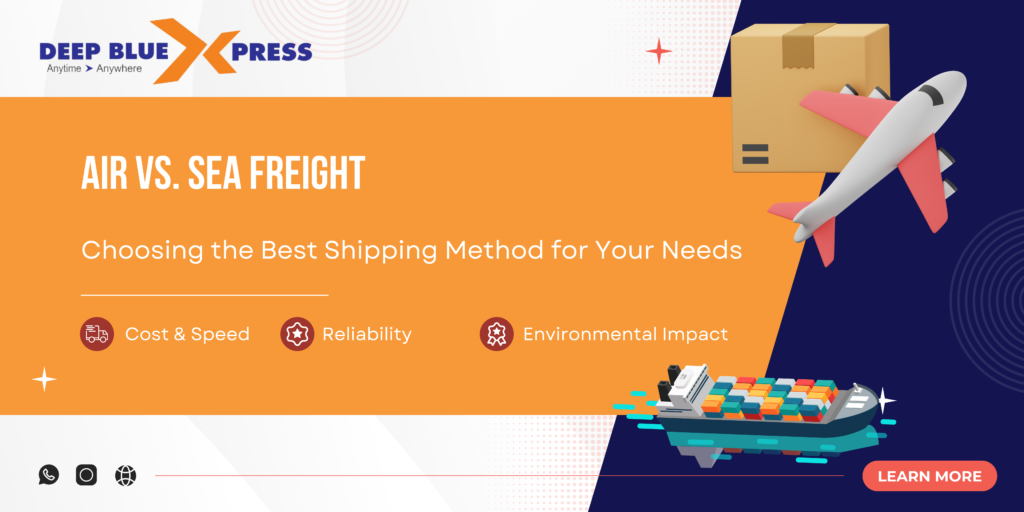FAQ
Air freight is ideal for time-sensitive shipments or products with a short shelf life, such as perishable goods or high-value items. It’s also preferred for urgent deliveries or when you need to replenish your stocks quickly.
Sea freight has many benefits, as it is well suited for shipping goods with a longer lead time, along with large and bulky cargo shipments. It’s commonly used for shipping a huge amount of stuff, including machine bodies, vehicles, furniture, and non-perishable items.
Shipping costs for both air and sea freight are influenced by factors such as the weight and dimensions of the shipment, the distance traveled, fuel prices, customs duties, and handling fees. Work with your freight forwarder or shipping provider to obtain accurate cost estimates based on your specific requirements.
Air freight may be susceptible to delays due to weather conditions, flight cancellations, or airspace restrictions. Sea freight faces risks such as vessel delays, port congestion, and potential damage to cargo during transit. Understanding and mitigating these risks are essential for successful international shipping.




